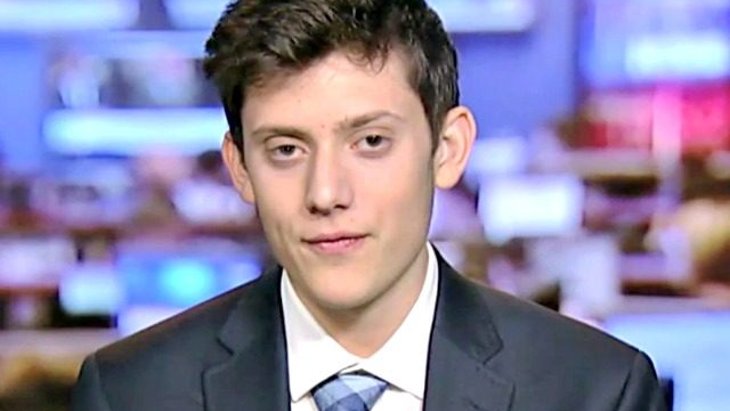 Vampire Weekend's Surprising Jewish Stories
Vampire Weekend's Surprising Jewish Stories


4 min read
Doesn’t Harvard believe in forgiveness and redemption?
My father, of blessed memory, taught me a long time ago, ““Never consider it a compliment if someone greets you after a long separation with the words, ‘You haven’t changed a bit.’” Life is meant to be filled with change – and when you are through changing, you are through.
None of us ought to be who we were years ago, nor should we be judged by our more immature versions. To get older is to become wiser. That is our mission in life. To be better than we were in the past, to learn from the follies of our youth and to grow from our mistakes is the true definition of greatness.
This point has escaped the admissions committee of Harvard University.
Kyle Kashuv, a son of Israeli immigrants, is a survivor of the tragic shooting last year at Marjorie Stoneman Douglas high school in Parkland Florida. The event transformed him. As he wrote in his essay for admission to Harvard, he hid in a classroom closet during the rampage of killing and he subsequently learned about the deaths of his classmates one by one. He could never again be the same. Activism became his mission. Ensuring that his experience never be repeated he swore to devote himself to “a path to protecting our students.” With the idealism of youth, he wrote “I still believe that from the pits of despair, goodness can and will prevail.”
It is a well-known psychological truism: People change for two main reasons – their minds have opened or their hearts have been broken. For Kyle both were agents for his newfound conviction to be a voice of change for the future.
Unlike his other now famous classmates such as David Hogg, Emma Gonzalez and Cameron Kasky who became high-profile advocates for stricter gun legislation, Kyle chose to come down on the gun rights side of the debate. He supports stricter background checks but also armed teachers, the elimination of gun free zones and heightened school security. But his views as a conservative hardly diminish his right to serve as spokesman nor take away from the admiration which should be his due for his total commitment.
But this week, Kyle was informed that his hope of attending Harvard was shattered.
A former classmate of Kyle alerted the admissions committee of text messages and Google documents in which Kyle, as a 16 year old, had written racist slurs. This was a late at night private session of teenagers attempting to outdo each other with outrageous comments. The admissions committee shortly thereafter contacted Kyle for an explanation.
In a Twitter thread, Kyle released copies of the letter he sent to Harvard’s dean of admissions. “Let me first state that I apologize unequivocally for my comments, which were made two years ago in private among equally immature high school students” his multiple-page letter began. He went on to describe how surviving the shooting at Stoneman Douglas had forced him to mature quickly into someone who does “not recognize the person who wrote those things.” Still, after reviewing Kyle’s explanation, Harvard notified him shortly thereafter:
“The Admissions Committee has discussed at length your account of the communications about which we asked, and we appreciated your candor and your expressions or regret for sending them. As you know the Committee takes seriously the qualities of maturity and moral character. After careful consideration the Committee voted to rescind your admission to Harvard College.”
Kyle’s transgression was committed in a private chat room at the age of 16, almost two years before a life altering tragedy. Doesn’t Harvard believe in forgiveness and redemption?
Is the sin of a youth meant to condemn him for a lifetime?
Some commentators place this incident in the context of the latest follow-up to political correctness. The term that has become today’s latest craze is “cancel culture.” Cancel culture takes what people have said or done either now or in the long distant past which may be considered problematic, insensitive or even slightly offensive to one group or another as sufficient grounds to “cancel” someone out as totally unworthy – complete social isolation equivalent to solitary confinement in the prison system.
What is most cruel – and perhaps even inexplicable – is that cancel culture ostensibly created to foster sensitivity and understanding for the hurt feelings of others can itself become so hurtful. Is compassion no longer a positive value? Is forgiveness no longer a virtue? Is the sin of a youth meant to condemn him for a lifetime?
Here is the ultimate irony: Harvard, as a foremost institute of higher learning dedicated to changing people’s lives, character and values just went on record rejecting the belief that people can actually change.
Related Article: Kyle Kashuv and the Limits of Forgiveness, by Judy Gruen
